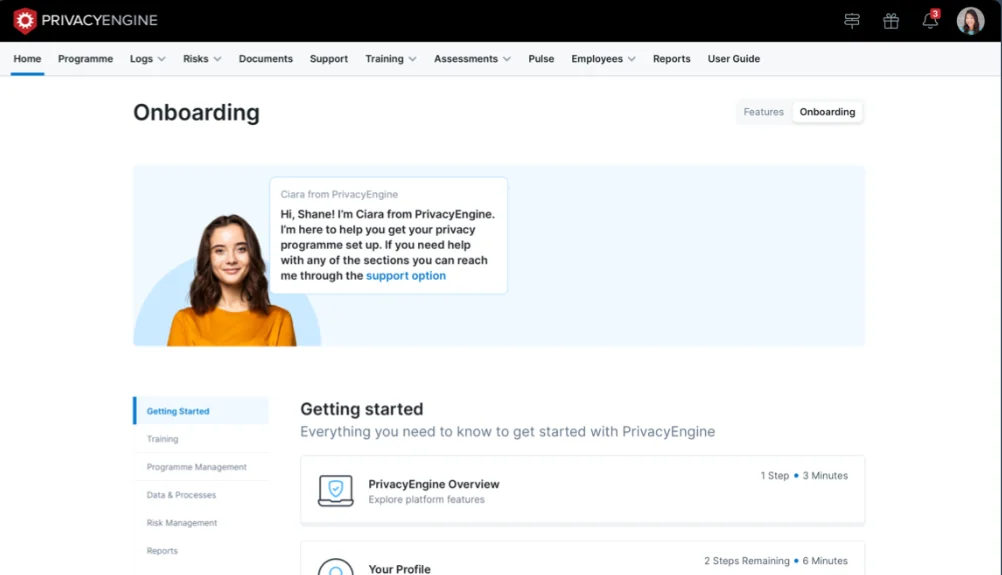Data Subject Access Requests (DSARs) have become an essential part of data protection and privacy legislation. In this article, we will explore the different aspects of DSARs, including their definition, importance, legal framework, how to make a request, and how to respond to one. We will also discuss the challenges involved in handling DSARs and provide solutions for efficient processing.
Understanding Data Subject Access Requests
Data Subject Access Requests, commonly known as DSARs, refer to the right of individuals to access their personal data held by organisations. This right is an integral part of data protection laws, ensuring transparency and giving individuals the opportunity to verify the accuracy and lawfulness of their personal information.
Definition of Data Subject Access Requests
A Data Subject Access Request is a written request made by an individual to an organisation, asking for access to their personal data. This request can include a wide range of information, such as personal documents, emails, bank statements, and any other data collected by the organisation.
When an individual submits a DSAR, they are essentially exercising their right to know what personal information an organisation holds about them. This can be particularly useful in situations where individuals suspect that their data is being mishandled or misused.
It is important to note that DSARs are not limited to electronic data. They can also encompass physical records, such as paper documents or audio recordings, that organisations may have in their possession.
Importance of Data Subject Access Requests
Data Subject Access Requests play a vital role in promoting transparency and accountability. They empower individuals by providing them with control over their personal information and enabling them to identify and rectify any inaccuracies or misuse.
When individuals exercise their right to access their personal data, they are given the opportunity to understand how their information is being processed and whether it is being handled in compliance with data protection regulations. This transparency fosters trust between individuals and organisations, as it demonstrates a commitment to data privacy and security.
Furthermore, DSARs encourage organisations to maintain accurate and up-to-date records of personal data. By fulfilling these requests promptly and efficiently, organisations not only comply with legal obligations but also demonstrate a commitment to data protection and privacy. This can enhance their reputation and build trust with their customers and stakeholders.
It is worth noting that DSARs can also help organisations identify any gaps or weaknesses in their data protection practices. By reviewing the information provided in response to these requests, organisations can evaluate their data handling procedures and make any necessary improvements to ensure compliance with data protection regulations.
Data Subject Access Requests are a fundamental aspect of data protection laws. They provide individuals with the opportunity to access and verify their personal data held by organisations, promoting transparency, accountability, and trust. Organisations that handle DSARs effectively not only comply with legal requirements but also foster strong relationships with their customers and stakeholders.
Legal Framework Surrounding Data Subject Access Requests
The GDPR sets out specific requirements for organisations handling DSARs. It stipulates that organisations must respond to requests without undue delay and usually within one month. In certain cases, an extension of two months is possible, depending on the complexity and number of requests.
This time frame ensures that individuals receive timely responses to their requests, allowing them to exercise their rights effectively. It also encourages organisations to prioritise data protection and streamline their processes to handle DSARs efficiently.
The GDPR mandates that organisations provide individuals with information about the purposes of data processing, the categories of personal data being processed, and any recipients of the data. This requirement enhances transparency and allows individuals to understand how their data is being used and shared.
Additionally, the GDPR prohibits organisations from charging excessive fees for fulfilling DSARs, except in exceptional circumstances. This provision ensures that individuals can exercise their right to access their personal data without facing financial barriers. It promotes equal access to information and prevents organisations from exploiting their position.
Organisations must also provide the requested information in a clear and concise format, ensuring that individuals can easily understand the data collected. This requirement promotes transparency and empowers individuals to make informed decisions about their personal information.
General Data Protection Regulation (GDPR) and Data Subject Access Requests
The GDPR sets out specific requirements for organisations handling DSARs. It stipulates that organisations must respond to requests without undue delay and usually within one month. In certain cases, an extension of two months is possible, depending on the complexity and number of requests.
This time frame ensures that individuals receive timely responses to their requests, allowing them to exercise their rights effectively. It also encourages organisations to prioritise data protection and streamline their processes to handle DSARs efficiently.
The GDPR mandates that organisations provide individuals with information about the purposes of data processing, the categories of personal data being processed, and any recipients of the data. This requirement enhances transparency and allows individuals to understand how their data is being used and shared.
Additionally, the GDPR prohibits organisations from charging excessive fees for fulfilling DSARs, except in exceptional circumstances. This provision ensures that individuals can exercise their right to access their personal data without facing financial barriers. It promotes equal access to information and prevents organisations from exploiting their position.
Organisations must also provide the requested information in a clear and concise format, ensuring that individuals can easily understand the data collected. This requirement promotes transparency and empowers individuals to make informed decisions about their personal information.
Other Relevant Laws and Regulations
In addition to the GDPR, other laws and regulations may influence DSARs depending on the jurisdiction or sector. For example, in the United States, the California Consumer Privacy Act (CCPA) grants individuals the right to access their personal data and requires organisations to provide detailed disclosures about their data collection and sharing practices.
The CCPA aims to protect the privacy rights of California residents and provides them with greater control over their personal information. It requires organisations to be transparent about their data practices, enabling individuals to make informed choices about sharing their data.
Similarly, other countries and regions have their own data protection laws that may impact DSARs. These laws often share common objectives with the GDPR, such as empowering individuals, promoting transparency, and ensuring accountability in data processing.
It is crucial for organisations to stay up to date with the relevant laws and regulations in their jurisdiction to ensure compliance and protect individuals’ privacy rights effectively.
How to Make a Data Subject Access Request
If you wish to make a DSAR (Data Subject Access Request), it is essential to understand the process and requirements. Here are the steps to follow:
Preparing Your Request
Prior to making a DSAR, it is advisable to gather all relevant information about the data you believe an organisation holds about you. This may include dates, names, and any supporting evidence that will help the organisation locate your personal data more easily.
For example, if you are requesting information from a healthcare provider, you may want to gather the dates of your medical appointments, the names of the healthcare professionals you interacted with, and any relevant medical records or test results.
By providing as much information as possible, you can help the organisation locate and retrieve your personal data more efficiently.
You should also make a note of any specific documents or categories of information you wish to access. By providing clear instructions, you can ensure that your request is fulfilled accurately.
For instance, if you are requesting access to your financial records from a bank, you may want to specify whether you are interested in your transaction history, loan agreements, or credit card statements.
Being specific about the information you want will help the organisation process your request more effectively.
Submitting Your Request
Once you have prepared your request, you can submit it to the organisation through various channels, such as email, postal mail, or an online request form if available. It is crucial to address the request to the organisation’s designated Data Protection Officer (DPO) or another authorised contact point, as they are responsible for handling DSARs.
When submitting your request, it is important to include your contact information, such as your full name, address, and phone number. This will enable the organisation to reach out to you if any clarifications or additional information are required.
In addition to your contact information, you may want to provide any additional details that may assist the organisation in identifying your records. For example, if you have an account number or membership details with the organisation, including them in your request can facilitate the search process.
By providing all the necessary information and addressing your request to the appropriate contact, you increase the chances of a smooth and efficient handling of your DSAR.
Responding to a Data Subject Access Request
Upon receiving a Data Subject Access Request (DSAR), organisations have a set of responsibilities to fulfil in a timely and compliant manner. These responsibilities are crucial in ensuring the protection of individual’s personal data and upholding their rights to access and control their information.
Responsibilities of the Data Controller
The Data Controller, who is the organisation or person determining the purposes and means of processing personal data, plays a vital role in handling DSARs. Their first responsibility is to promptly acknowledge the receipt of the DSAR, acknowledging the importance of the request and the individual’s right to access their personal data.
Once the receipt has been acknowledged, the Data Controller must take the necessary steps to verify the identity of the requester. This verification process is essential to ensure the security and confidentiality of the personal information being disclosed. By confirming the identity, the Data Controller can prevent unauthorised access to sensitive data and protect the individual’s privacy.
After verifying the requester’s identity, the Data Controller must then conduct a thorough search for the requested data. This search should consider all relevant sources and systems where the data may be stored, including databases, file servers, and backup systems. The Data Controller must leave no stone unturned in their search, ensuring that all potential locations for the requested data are explored.
Once the data has been located, the Data Controller must ensure that it comprehensively covers all the requested information. This means gathering all relevant documents, files, and records that fall within the scope of the DSAR. It is essential to provide a complete and accurate response to the requester, enabling them to fully exercise their rights and understand how their personal data is being processed.
Time Frame for Response
Under most data protection regulations, organisations are typically required to respond to DSARs within one month of receipt. This time frame ensures that individuals receive a timely and efficient response to their requests, enabling them to exercise their rights effectively. However, there may be circumstances where the requests are complex or numerous, making it challenging to provide a response within the standard one-month period.
In such cases, data protection regulations often allow for a two-month extension to respond to DSARs. This extension recognises the need for additional time to handle complex requests thoroughly. However, organisations must ensure that they inform the individual within one month about the reasons for any delay, including the estimated response timeframe. This transparency is crucial in maintaining trust and keeping the individual informed about the progress of their request.
Responding to DSARs is a critical aspect of data protection and privacy compliance. By fulfilling their responsibilities as Data Controllers, organisations demonstrate their commitment to upholding individuals’ rights and safeguarding their personal data.
Challenges and Solutions in Handling Data Subject Access Requests
Processing DSARs can present several challenges for organisations. Here are some common difficulties and best practices to overcome them:
Common Difficulties in Processing Requests
The volume and complexity of DSARs can be overwhelming for organisations, especially those with large-scale data processing operations. With the increasing amount of data being generated and stored, organisations may struggle to efficiently handle and respond to these requests. Additionally, identifying and retrieving the requested data from various systems or third-party providers can pose logistical challenges. It requires meticulous coordination and cooperation between different departments and stakeholders to ensure a comprehensive and timely response.
Moreover, organisations may also face difficulties when responding to DSARs that involve sensitive or confidential information related to third parties. In such cases, careful consideration must be given to redaction or anonymisation techniques to protect the privacy and rights of all individuals involved. Striking the right balance between transparency and data protection can be a delicate task.
Best Practices for Efficient Handling
Implementing robust data management processes and investing in modern data management systems can significantly streamline the response to DSARs. By adopting efficient data management practices, organisations can effectively organise and index personal data, reducing search and retrieval times. This can be achieved through the implementation of data classification systems, data mapping, and the use of advanced search tools.
Furthermore, providing training and guidance to employees involved in the DSAR process ensures consistent and compliant handling. It is essential to educate employees about the legal requirements and obligations surrounding DSARs, as well as the importance of data privacy and protection. By fostering a culture of data privacy and compliance, organisations can enhance their overall response capabilities.
Moreover, prioritising security measures is crucial to safeguard personal data during the retrieval and disclosure processes. Implementing strong access controls, encryption techniques, and monitoring systems can help mitigate the risk of unauthorised access or data breaches. Regular audits and assessments of data protection measures can also identify potential vulnerabilities and ensure ongoing compliance.
In conclusion, Data Subject Access Requests are a fundamental right that allows individuals to maintain control over their personal data. Understanding the definition, importance, legal framework, and practical aspects of DSARs is crucial for individuals and organisations alike. By following proper procedures and adopting best practices, organizations can fulfil DSARs efficiently, enhance data protection compliance, and build trust with their customers. The continuous improvement of processes and the adaptation to evolving legal and technological landscapes will be key in successfully handling DSARs in the future.
Experience ease and efficiency in handling DSARs with PrivacyEngine. Activate your FREE Account now!




